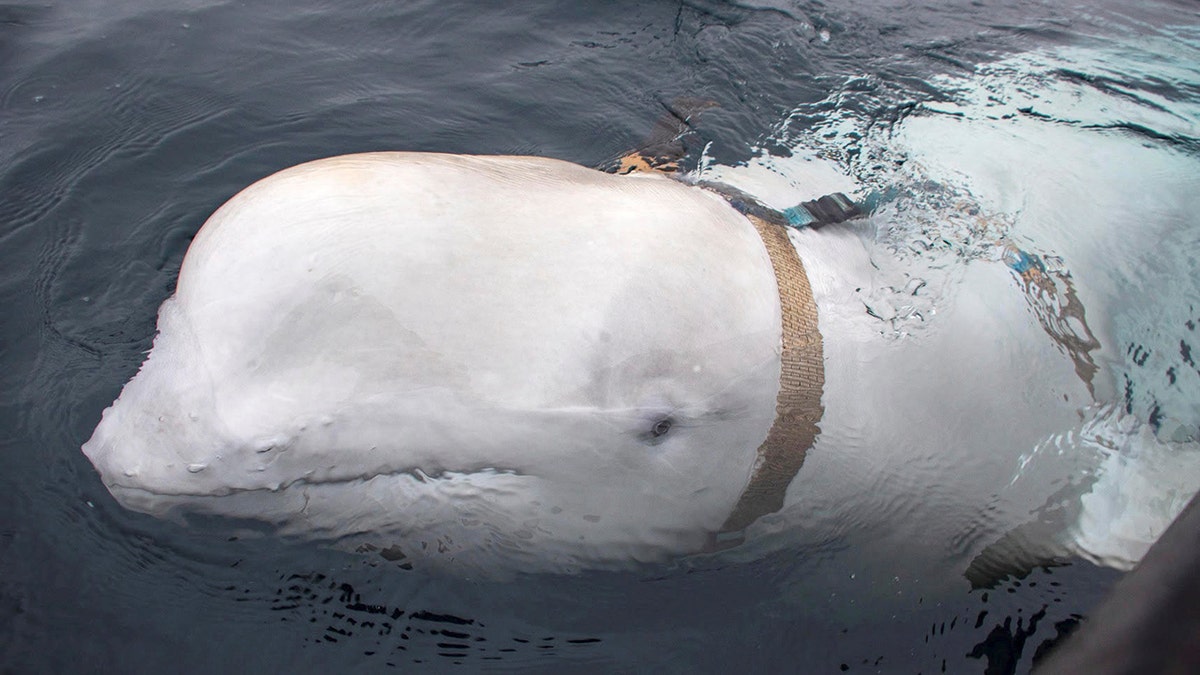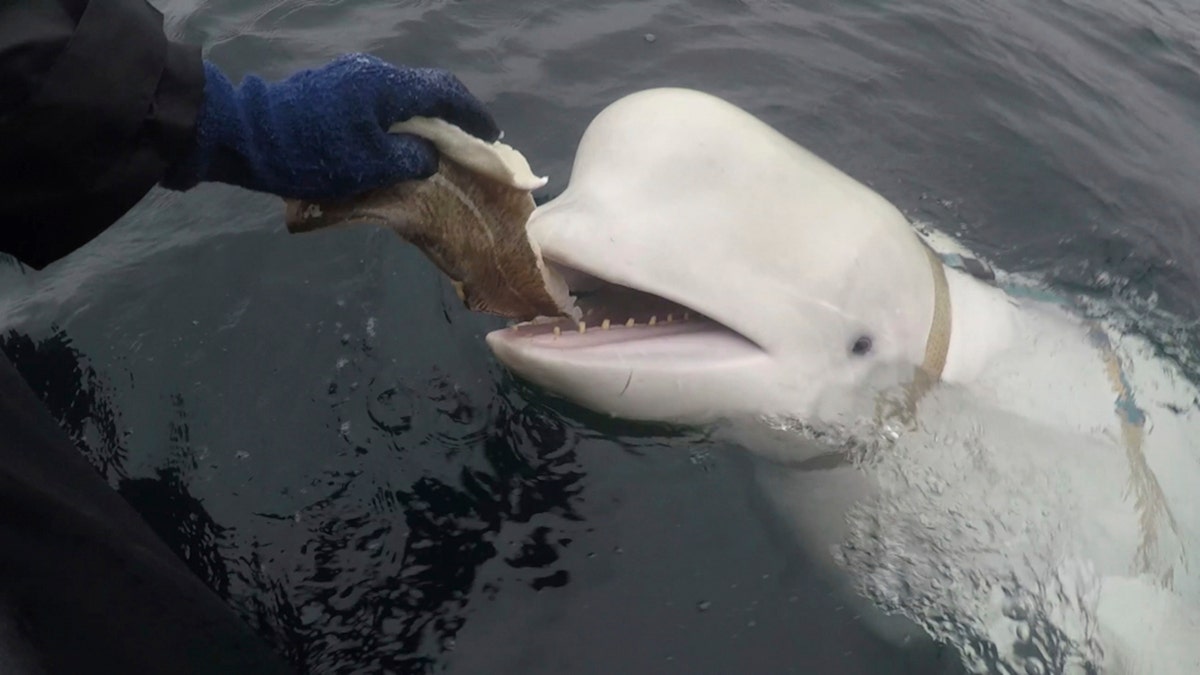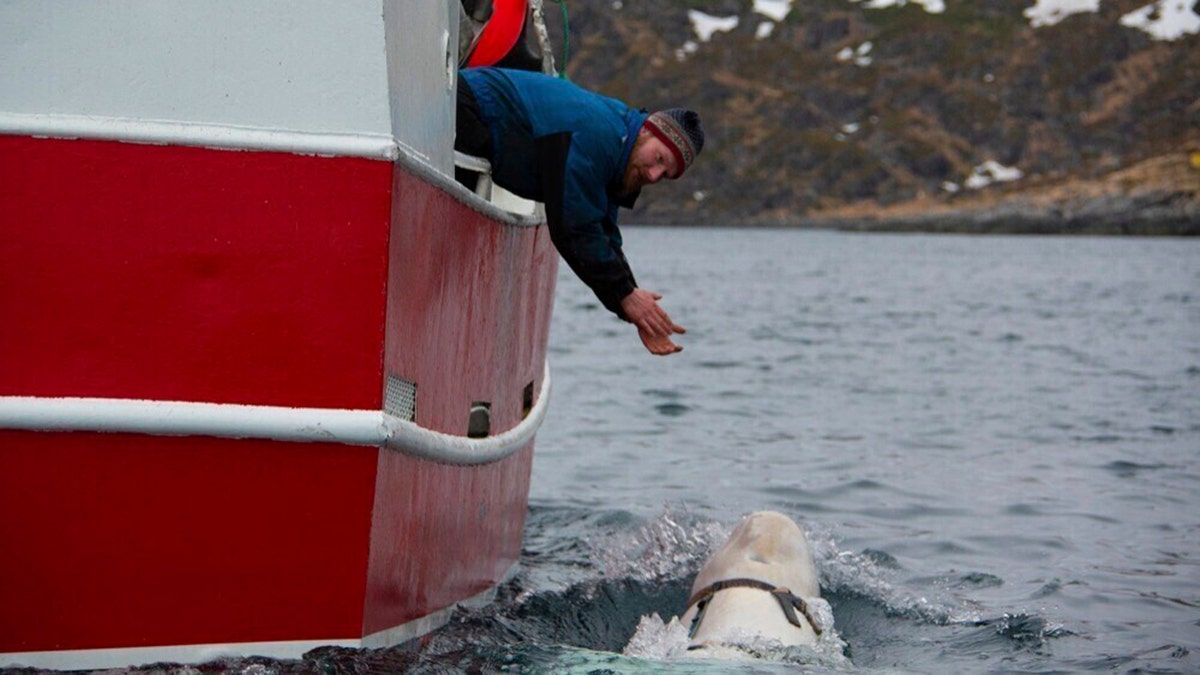Alleged Russian 'spy' whale, beloved in Norway, found dead
Hvaldimir, a beluga whale that was found wearing a harness that linked it to Russia in 2019, had become something of a celebrity in Norway before it was found dead last weekend. (Credit: Reuters)
Havldimir quickly became a celebrity in Norway, swimming his way into their Nordic hearts.
But this beluga whale's odd story started in 2019 when he was discovered in northern Norway near the island of Ingoya wearing a harness with "Equipment St Petersburg" written in English connected to a mount for a small camera.
Hvaldimir, as Norwegians dubbed him – mixing together the Norwegian word for whale and Russian President Vladimir Putin’s name – was intelligent, friendly and responded to hand signals, leading Norway's spy agency to believe he had been held in captivity by Russia and used for research purposes.
Once Hvaldimir was freed from his harness, though, his friendly personality made him beloved in the country.
CRITICALLY ENDANGERED WHALE SEEN OFF CALIFORNIA COAST: ‘EVERY SIGHTING IS INCREDIBLE VALUABLE TO US’

Hvaldimir was found in 2019 wearing a harness with a camera mount on it. (Jorgen Ree Wiig/Sea Surveillance Service/Handout/NTB Scanpix via Reuters/File Photo)
He was fed and monitored by the Norwegian government and dubbed a "free-swimming whale" by the Norwegian Orca Survey, venturing as far as Sweden but always returning home, according to The Telegraph.
Hvaldimir was found dead off southern Norway last weekend.
"It’s absolutely horrible," marine biologist Sebastian Strand, who worked with Marine Mind, told Norwegian public broadcaster NRK. "He was apparently in good condition as of (Friday), so we just have to figure out what might have happened here."
BREACHING WHALE CAPSIZES BOAT AFTER LANDING ON TOP OF IT OFF NEW HAMPSHIRE, SHOCKING VIDEO SHOWS

Hvaldimir, being fed here, became beloved in Norway. (orgen Ree Wiig, Norwegian Directorate of Fisheries via AP)
Hvaldimir may have died of natural causes, but conservation groups NOAH and One Whale have filed police reports claiming he was shot, according to the Telegraph.
The Oceanic Preservation Society said that a necropsy will be done on Hvaldimir to determine his cause of death in the next few weeks.
"We've been absolutely devastated over the news, and are deeply saddened that humanity failed this beloved whale," the organization said on social media.

He was fed and monitored by the Norwegian government and dubbed a "free-swimming whale" by the Norwegian Orca Survey, venturing as far as Sweden but always returning home. (Jorgen Ree Wiig, Norwegian Directorate of Fisheries via AP)
Nonprofit Marine Mind said on Facebook that Hvaldimir "bridged the gap" between humans and wild animals in a way "few can."
CLICK HERE TO GET THE FOX NEWS APP
"Hvaldimir was not just a beluga whale; he was a beacon of hope, a symbol of connection, and a reminder of the deep bond between humans and the natural world," the organization said. "Over the past five years, he touched the lives of tens of thousands, bringing people together in awe of the wonders of nature. His presence taught us about the importance of ocean conservation, and in doing so, he also taught us more about ourselves."
Reuters and the Associated Press contributed to this report.








































